
This book is intended as a reference volume only, not as a medical manual. The information given here is designed to help you make informed decisions about your health. It is not intended as a substitute for any treatment that may have been prescribed by your doctor. If you suspect that you have a medical problem, we urge you to seek competent medical help.
The information in this book is meant to supplement, not replace, proper exercise training. All forms of exercise pose some inherent risks. The editors and publisher advise readers to take full responsibility for their safety and know their limits. Before practicing the exercises in this book, be sure that your equipment is well-maintained, and do not take risks beyond your level of experience, aptitude, training, and fitness. The exercise and dietary programs in this book are not intended as a substitute for any exercise routine or dietary regimen that may have been prescribed by your doctor. As with all exercise and dietary programs, you should get your doctors approval before beginning.
Mention of specific companies, organizations, or authorities in this book does not imply endorsement by the author or publisher, nor does mention of specific companies, organizations, or authorities imply that they endorse this book, its author, or the publisher.
Internet addresses and telephone numbers given in this book were accurate at the time it went to press.
2015 by Rodale Inc.
Photographs 2015 by Rodale Inc.
All rights reserved. No part of this publication may be reproduced or transmitted in any form or by any means, electronic or mechanical, including photocopying, recording, or any other information storage and retrieval system, without the written permission of the publisher.
Rodale books may be purchased for business or promotional use or for special sales.
For information, please write to:
Special Markets Department, Rodale Inc., 733 Third Avenue, New York, NY 10017
Prevention is a registered trademark of Rodale Inc.
Exercise photographs by Mitch Mandel. All other photos by Tom MacDonald.
Book design by Joanna Williams
Library of Congress Cataloging-in-Publication Data is on file with the publisher.
ISBN 9781623365356 hardcover
eISBN 9781623365363

We inspire and enable people to improve their lives and the world around them.
rodalebooks.com
To the
sweetest treats
in my life:
Casimir, Katie,
and Charlotte
 Contents
Contents
 Foreword
Foreword
I n recent years, sugar has become ubiquitous in our culture to the point where its practically inescapable. Of course, its in the candy, cookies, cakes, pudding, donuts, and ice cream where we expect to see it. But these days, the sweet stuff is also showing up in foods where it really doesnt belongincluding crackers, chips, pasta sauces, potato salads, breads, salad dressings, and soupsand as unsuspecting consumers, we have no idea its there. For food manufacturers, money talks and sugar sells. Adding sugar to packaged foods makes them more appealing (and arguably addictivebut well get to that later) and hence makes us more likely to buy them. As a result, the food industry has essentially hijacked our taste buds, and were craving the sweet stuff 24/7. Its a dangerous cycle: The more we crave, the more we eat, and the more we eat, the more we crave.
Anne Alexander experienced this reality firsthand shortly after she moved back to the States after spending a decade abroad. Immediately, she found her taste buds had been corrupted and her hunger had been sent into overdrive by added sugar, and she decided to figure out why. Annes groundbreaking 2013 book, The Sugar Smart Diet, was the culmination of years of personal dietary detective work.
Anne was the editorial director of Prevention at the time, which is when I got to know her while working as a contributing editor. Anne has long been a trailblazer as a writer and editor, helping women take steps to enhance their health and their familys health: Every aspect of her work is marked by her trademark intelligence, common sense, and real-world wisdom, qualities she brings to her remarkable, engaging books. These pages truly come to life, however, because Anne is personally invested in this subject, thanks to her own (now reformed) sweet tooth.
As she uncovered in her research, Americans are ODing on sugar, often without realizing it, and thats a problem for our health and our waistlines. As Anne points out, the average American consumes 22 teaspoons of sugar per day (352 calories worth!), triple the recommended limit of added sugars for a healthy diet. Excess sugar and processed foods contribute to hormonal imbalances (especially detrimental shifts in appetite-regulating hormones) and chronic, low-grade inflammation. These conditions are at the root of the most prevalent health problems in our society todayfrom obesity and type 2 diabetes to fatty liver disease, heart disease, and Alzheimers disease.
In my medical practice, on a daily basis I see patients who are struggling with how to deal with sugar cravings as they try to improve their diets. Some cant give up the sugar they know theyre eatingdessert and sweet treats are unbreakable habits for themso not surprisingly, weight loss is an endlessly frustrating challenge. Meanwhile, others assume they dont consume sugar because they dont eat sweets, yet theyre unaware that stealth sugars in processed foods are undoing their well-intentioned weight-loss efforts and propelling them toward myriad health problems. Thats why Sugar Smart Express speaks to all of us.
Sugar Smart Express provides a comprehensive look at how our food supply became sugarized over the last 40 years, a trend thats linked directly with the obesity epidemicas you may know, nearly two-thirds of the US population is either overweight or obese, and that number is on the rise. As Anne points out, were physiologically programmed to like sugar, thanks to our neurologic responses to sweet tastes and the emotional pleasure we derive from consuming them. The trouble is, its easy for this feel-good programming to spiral out of control because sugar in its many incarnations (sugars, fruit juice concentrates, syrups, honey, molasses, and anything ending in ose, in packaged foods) stimulates our appetite. Plus, eating sugar boosts our mental and physical cravings for more, a phenomenon that researchers have called sugar addictionwith some even claiming that the sweet stuff is more habit-forming than cocaine.
Thats where Sugar Smart Express comes in: In recent years, much has been written about why sugar is bad for us and how prevalent it is in our food supply. This book offers a clear path for what to do with these unfortunate realities. It provides a plan thats designed to help us retrain our taste buds to become more sensitive to sugar so that we crave less of it. Rather than advising a rigid method of eliminating sugar entirely, Anne offers a refreshingly balanced approach to becoming conscious of where it lurks in our diets and reducing our intake in manageable phases. Her goal is to help us reclaim control over the sugar we consume instead of letting stealth sources of sugar control our eating habits, our weight, our health, our moods, and more. Its about finding the sweet spot where we can consume sugar consciously, selectively, and in moderation but still maintain intentional control over how much of it we eat.


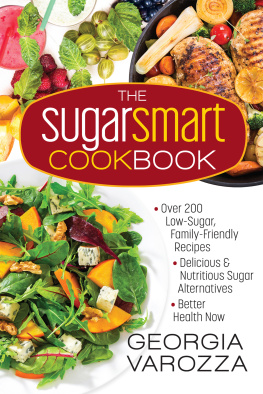
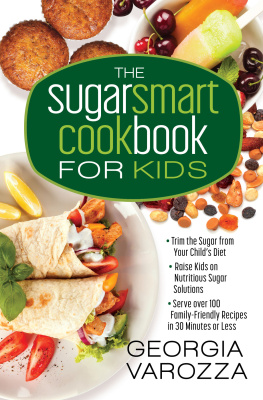
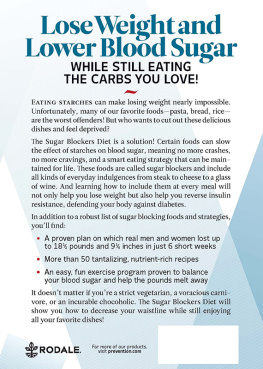
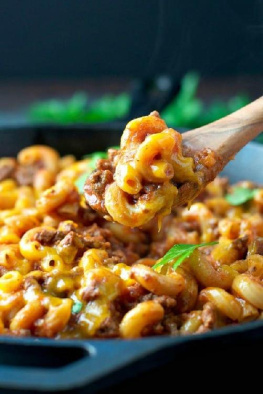
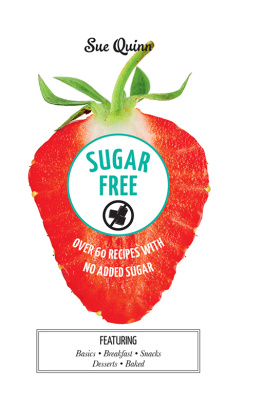
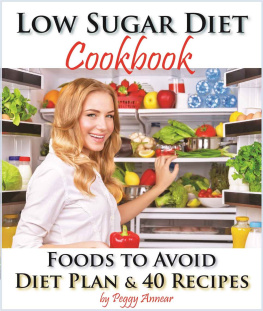
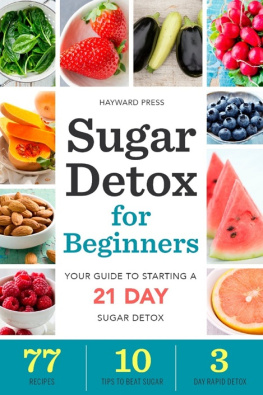



 Contents
Contents